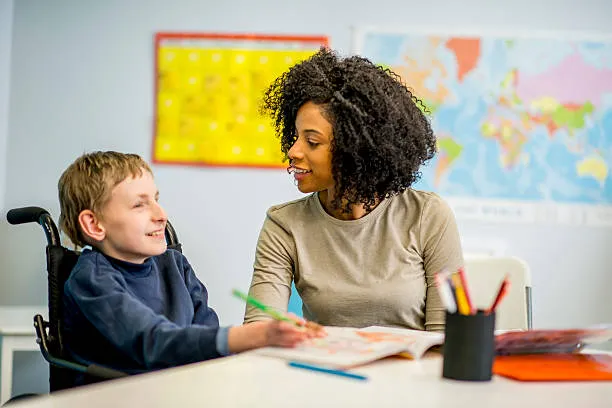Enhancing Writing Skills in Special Education

Writing is a fundamental skill that plays a crucial role in a student's academic and personal development. For students, enhancing writing skills in special education can be particularly challenging but also immensely rewarding. By implementing tailored strategies and providing necessary support, educators can help students in special education improve their writing abilities and boost their confidence. This article explores effective ways to enhance writing skills in special education.
The Importance of Writing Skills in Special Education
Before delving into specific strategies, it is essential to understand why writing skills are vital for students in special education:
- Writing promotes communication and expression.
- It enhances critical thinking and problem-solving abilities.
- Writing fosters creativity and imagination.
- It improves organizational skills and time management.
- Writing is a form of self-expression and reflection.
Strategies for Enhancing Writing Skills
1. Differentiated Instruction
One size does not fit all when it comes to teaching writing in special education. Differentiated instruction allows educators to tailor their teaching methods to meet the diverse needs of students. Some ways to differentiate instruction include:
- Providing individualized writing prompts based on student interests and abilities.
- Offering varied levels of support, such as visual aids or graphic organizers.
- Using assistive technology tools like speech-to-text software for students with physical challenges.
2. Multi-Sensory Approaches
Engaging multiple senses can help students in special education better retain information and improve their writing skills. Multi-sensory approaches involve incorporating various sensory modalities, such as sight, sound, and touch, during writing activities. Examples of multi-sensory approaches include:
- Using textured materials for hands-on writing exercises.
- Incorporating music or rhythmic chants to enhance memory and engagement.
- Encouraging students to dictate their thoughts orally before writing them down.
3. Explicit Instruction
Providing clear and explicit instruction is crucial for students in special education to grasp writing concepts effectively. Explicit instruction involves breaking down writing tasks into manageable steps and offering direct guidance throughout the writing process. Some tips for explicit instruction include:
- Modeling writing strategies and techniques before asking students to apply them independently.
- Using clear and concise language to explain writing rules and conventions.
- Offering frequent feedback and reinforcement to reinforce learning and progress.
4. Peer Collaboration
Encouraging peer collaboration can be beneficial for students in special education to enhance their writing skills. Collaborating with peers allows students to exchange ideas, provide feedback, and learn from each other's perspectives. Some ways to promote peer collaboration in writing include:
- Pairing students with diverse abilities to work on writing projects together.
- Facilitating group discussions where students can share their writing and receive constructive criticism.
- Encouraging peer editing and revision to improve the clarity and coherence of writing assignments.
Supporting Students in Special Education
1. Individualized Education Plans (IEPs)
IEPs are personalized plans designed to meet the unique needs of students in special education. Writing goals and strategies can be included in a student's IEP to provide targeted support and accommodations. Educators, parents, and support staff can collaborate to ensure that writing skills are addressed effectively in the IEP.
2. Assistive Technology
Assistive technology tools can help students in special education overcome writing challenges and enhance their skills. From speech recognition software to word prediction programs, assistive technology offers a range of solutions to support students with diverse learning needs. Educators can explore and implement suitable assistive technology tools to empower students in their writing endeavors.
3. Positive Reinforcement and Encouragement
Building a positive and supportive writing environment is crucial for students in special education to feel motivated and confident. Offering praise, encouragement, and constructive feedback can boost students' self-esteem and willingness to engage in writing activities. Celebrating small victories and progress milestones can also reinforce positive writing behaviors and attitudes.
Conclusion
Enhancing writing skills in special education requires a combination of tailored strategies, personalized support, and a nurturing learning environment. By recognizing the unique strengths and challenges of each student, educators can empower students in special education to develop their writing abilities and achieve academic success. Through differentiated instruction, multi-sensory approaches, explicit instruction, peer collaboration, IEPs, assistive technology, and positive reinforcement, students in special education can build essential writing skills that will benefit them in their academic and personal journeys.